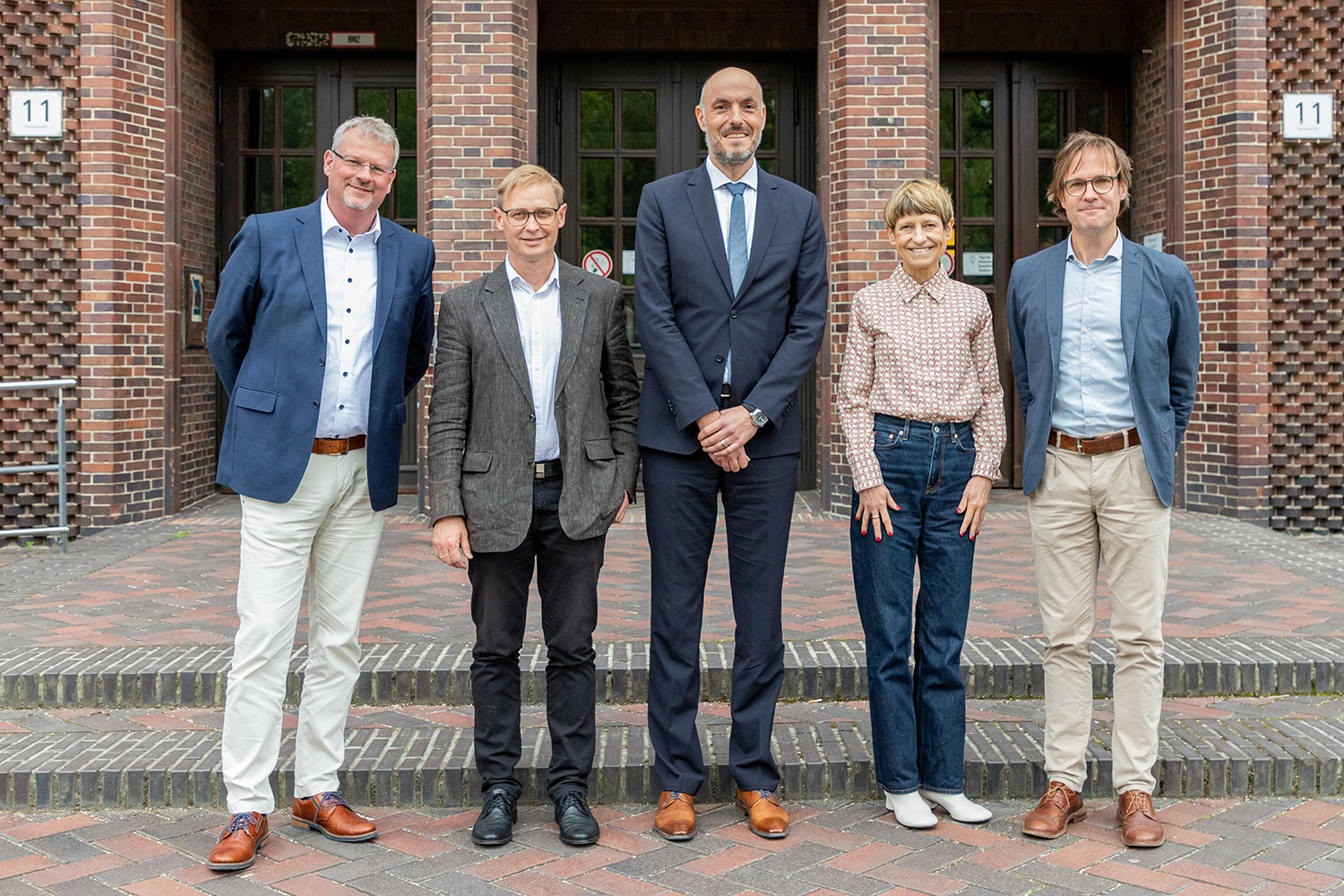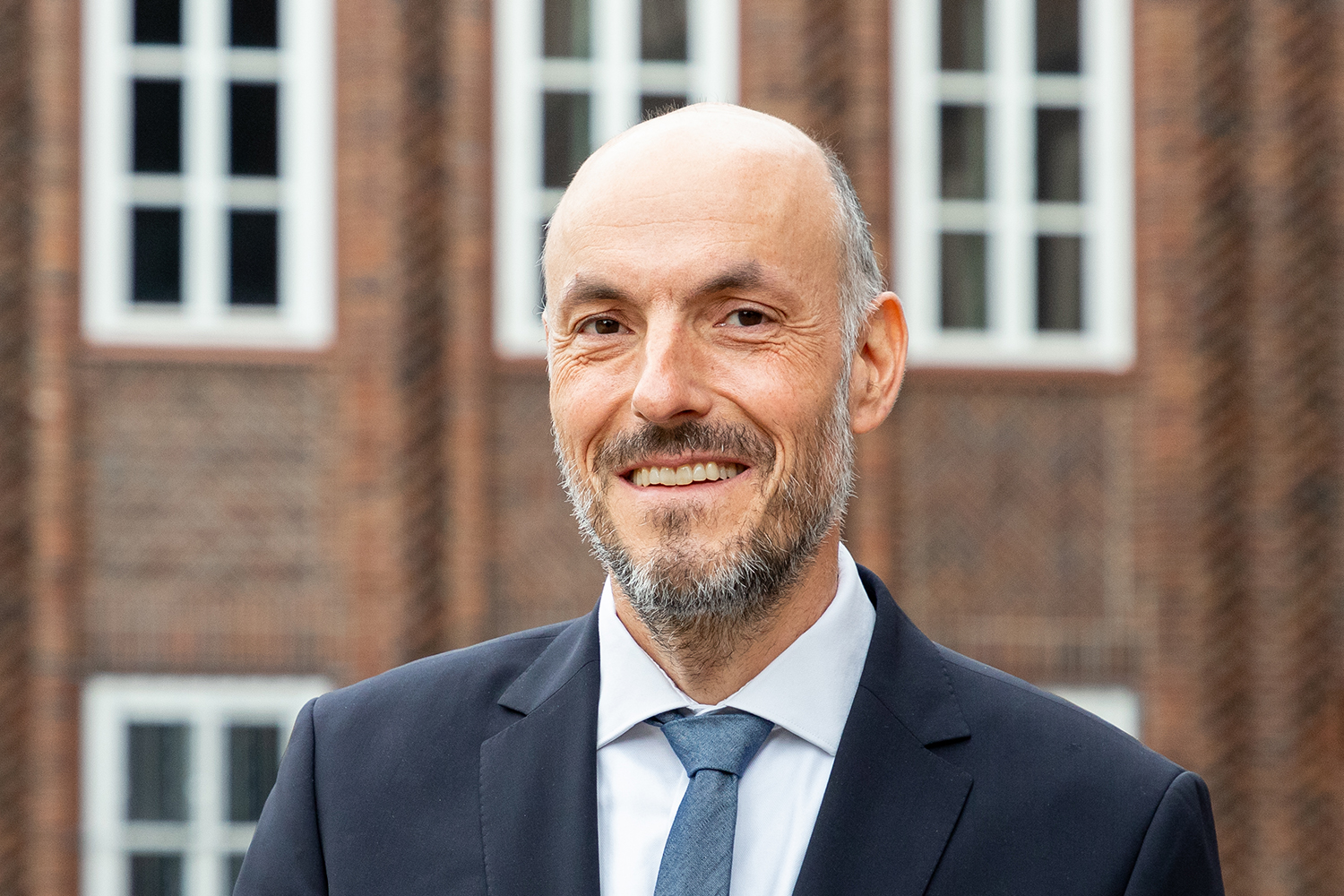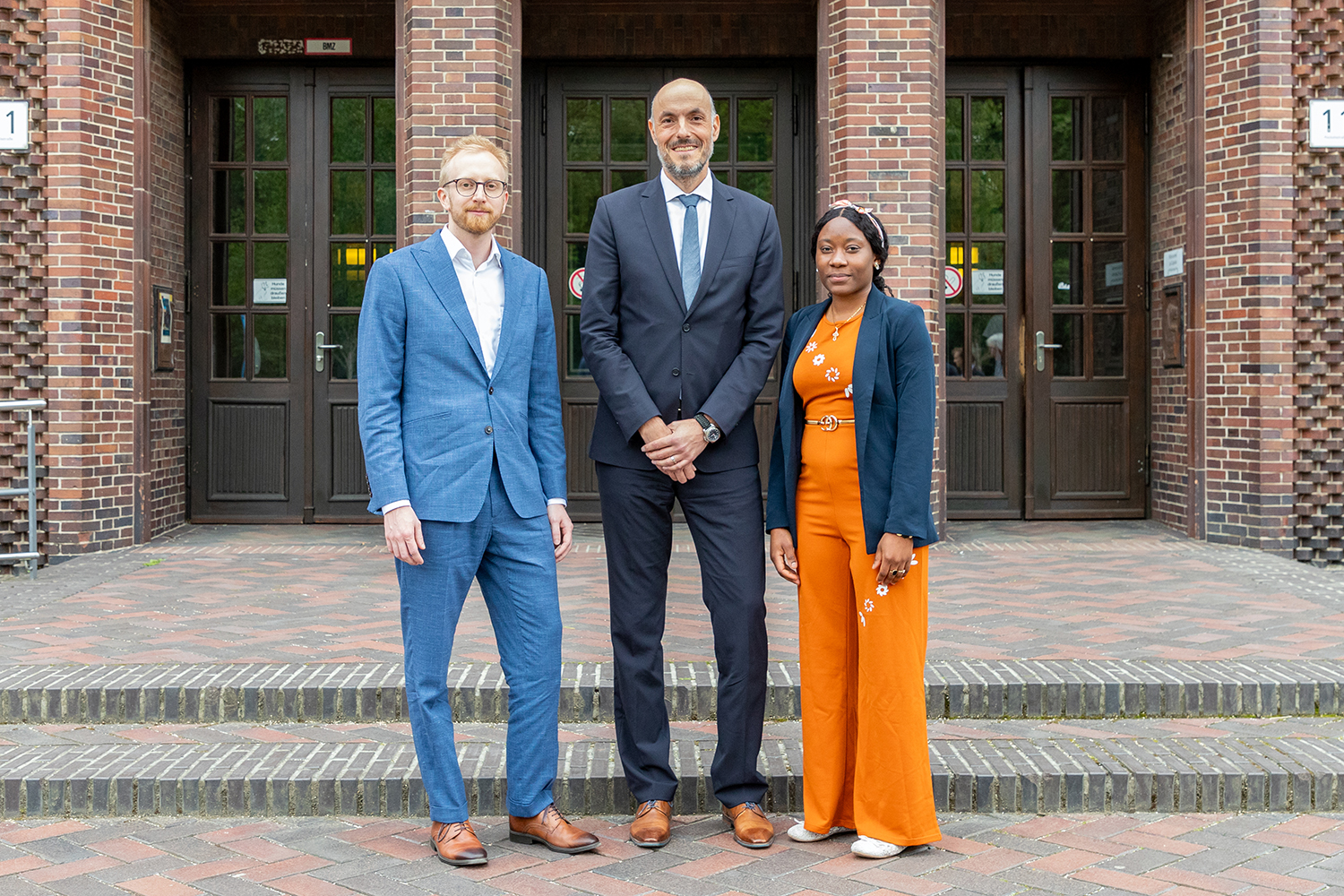Chemist Prof. Stephan A. Sieber receives Inhoffen Medal 2024 HZI and Technische Universität Braunschweig honour researcher
The Friends of the Helmholtz Centre for Infection Research (HZI) in Braunschweig and Technische Universität Braunschweig have awarded the 2024 Inhoffen Medal to Prof. Stephan A. Sieber from Technische Universität München for his research into new drugs against multi-resistant bacteria. The award ceremony took place on 13 June 2024 at the House of Science in Braunschweig.

Laudator Prof. Dr. Thomas Carell (Head of the Institute of Chemical Epigenetics at Ludwig-Maximilians-Universität Munich), Chairman of the HZI Friends of the HZI Prof. Klemens Rottner, Inhoffen Prize Laureate Prof. Stephan A. Sieber, TU President Prof. Angela Ittel and Prof. Thomas Pietschmann (Deputy Scientific Director of the HZI). Photo credit: Kristina Rottig/TU Braunschweig
After the discovery of many antibiotics in the mid-20th century to combat multi-resistant bacteria, the number of new compounds has stagnated. Most antibiotics in use today are focused on a small number of cellular targets. This has allowed pathogenic bacteria to develop multiple resistance strategies. As a result, bacterial strains resistant to common antibiotics are on the rise.
Due to the large number of essential proteins in bacteria, there is enormous potential for deciphering previously unknown target structures for antibiotics for which no resistance strategies are yet available. This is what Stephan Sieber and his team are focusing on. They use synthetic chemistry, functional proteomics, microbiology and protein biochemistry techniques and their combination to discover new antibacterial targets. Based on these findings, the researchers can identify new active substances and optimise them through chemical modification.
Hans Herloff Inhoffen Lecture: Mechanisms for the self-destruction of bacterial cells

Awarded the Inhoffen Medal 2024: Chemist Prof. Stephan A. Sieber from Technische Universität München. Photo credit: Kristina Rottig/TU Braunschweig
In the 29th Hans Herloff Inhoffen Lecture on 13 June, at which the prize was awarded, Prof. Stephan Sieber spoke about how bacterial resistance can be overcome using chemical molecules. The strategy is based on causing massive damage to the bacterial cell by deregulating biochemical processes. The scientists working with Prof. Sieber are looking for mechanisms by which bacteria can destroy themselves. They have developed a molecule that overactivates a peptidase responsible for protein secretion. “However, the cell cannot cope with this overactivation. Autolysins are released in uncontrolled quantities, which destroy the cell in the next step. This is dysregulation. Or we induce stress in bacteria but at the same time switch off the stress response, which should at least neutralise the stress somewhat. This is also fatal,” summarises Prof. Sieber.
Prof. Sieber studied chemistry at the University of Marburg and completed his PhD in 2004 in the laboratories of Prof. C. T. Walsh at Harvard Medical School (USA) and Prof. M. Marahiel at the University of Marburg. After a postdoctoral stay at Scripps Research (USA) with Prof. B. F. Cravatt in 2006, he started his independent research at the Ludwig-Maximilians-Universität in Munich, funded by the Emmy Noether Programme of the German Research Foundation (DFG). In 2009, he was appointed to the Chair of Organic Chemistry II at Technische Universität München. In 2011, 2016 and 2023 he received an ERC Starting Grant, an ERC Consolidator Grant and an ERC Advanced Grant.
About the prize
The €8000 Inhoffen Prize, awarded by the Friends of the HZI, is the most prestigious German award in the field of natural product chemistry. It is awarded during the Inhoffen Lecture, a joint event of the HZI, Technische Universität Braunschweig and the Friends of the HZI. Previous winners were Christian Hertweck, Leibniz Institute for Natural Product Research and Infection Biology (2020), Sarah Reisman, California Institute of Technology (2022) and Jörn Piel, ETH Zurich (2023).
HZI doctoral prizes

The award winners: Dr. Matthias Bruhn (Doctoral Prize), Prof. Stephan A. Sieber (Inhoffen Medal), Dr. Blondelle Matio Kemkuignou (Doctoral Prize) Photo credit: Kristina Rottig/TU Braunschweig
As part of the ceremony, the Friends of the HZI also awarded doctoral prizes to young scientists at the HZI. Dr Blondelle Matio Kemkuignou (HZI) was honoured for her work “Novel bioactive natural products from selected Basidiomycota and plant-associated Ascomycota” and Dr Matthias Bruhn (TWINCORE) for his thesis “Can B cells see the future?”.
The award winners are selected from submissions from the HZI sites, TWINCORE in Hannover and Technische Universität Braunschweig. They are awarded annually and only include work completed in the previous year.
